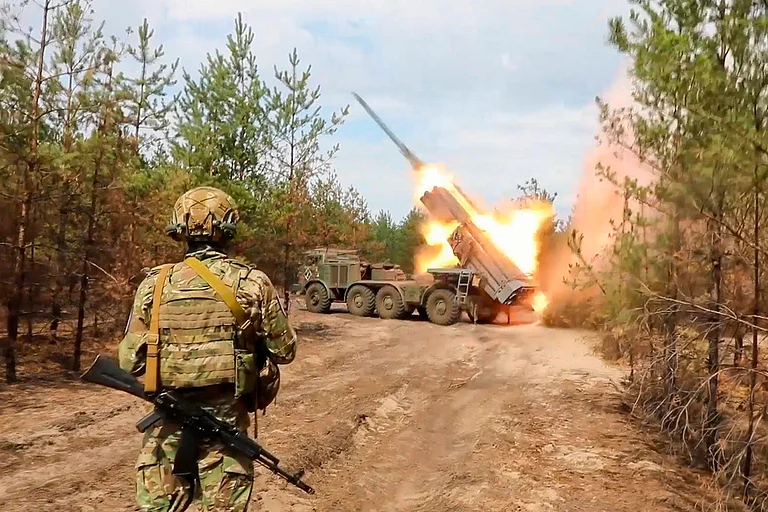As corporations increasingly stretch their boundaries and the fame of the Indian brain spreads, globalisation has become a by-word at all the six IIMs. Says Jagdeep Chhokar, acting director, IIM-A: "The moment you refer to globalisation, it conjures up the notion that we are quickening the brain drain. But we are not preparing our students to take the first flight out of India after having learned and honed their skills here. For instance, a substantial number of our students who take up our global exchange programme choose to work in India."
Exchange programmes were the first logical step to take when the IIMs decided to go global. IIM-C, for instance, interfaces with the faculty and students of the best business schools in North Europe, Scandinavia and Spain. Started in 1999, 50 students participated in the one-semester student exchange programme this year while about 30 foreign students are expected (this number would have been more but for the Indo-Pak tension). The number of foreign partners is now 20. Says B.N. Srivastava, dean, programme initiatives: "The objective is to provide students with increased exposure to cultures and business practices other than their own."
The IIM-B programme will see 25 students travel abroad for a four-month stint at one of its 30 partner colleges. Says Rajluxmi V. Murthy, chairperson of the programme: "Our students don’t have to pay for the courses they take. They pay for travel, accommodation and food. It works out to Rs 1.5-2 lakh per student." IIM-B also has a system to fund needy students but "if we can get corporate funding, their number can be increased".
One-third of IIM-A’s students, or 65-75 of them, go abroad. Says Amit Kumar, coordinator of students’ activities: "Our aim is to make it two-thirds." While Indian students go to Europe, the US, Japan, Australia, New Zealand and Thailand, overseas students are mainly from Sri Lanka, Indonesia, Fiji and Zimbabwe.IIM-B’s International Business in Practice, a two-week programme every December, has a group of 20 local students working on live projects in companies in Thailand and Singapore, accompanied by faculty members. Under the International Culture Transfer Project, a similar number travels to an overseas location. There’s also the summer placement sweepstakes. Says Imran Jaffer, who worked in a VC firm in Boston and now readies for a four-month stint at the Fuqua School of Business, Duke University, North Carolina: "The global interaction gives us a perspective on placement options, career expectations overseas and cultural understanding of diverse markets."
The exchange programmes are not limited to students. Says IIM-C’s Srivastava: "Our faculty is mostly trained in the US and have little exposure to European and Asian business schools and this programme should broaden the members’ perspective. The visiting faculty also learns about Indian business conditions." Top B-schools from Sweden, Norway, Belgium, France, Spain and Germany have shown interest in welcoming doctoral students and faculty. Says Ranjan Das, director of the Management Development Programme: "We are set to internationalise our executive education capabilities and further strengthen our school as a centre of excellence in all Asia-Pacific."
IIM-C was the first Indian B-school to hold a two-week International Advanced Management Programme, in Dubai in September 2001. At the next programme held in Singapore, IIM-C offered a more interesting subject: Indian business strategy, or ‘How to do business with India’. Adds Das: "We also intend to hold these programmes for the US and UK managers on Accessing India’s Intellectual Capital: How to Outsource from India." IIM-C also has a Faculty Development Programme where professors from the Asian region currently teaching subjects like economics, statistics and sociology will get management education. IIM-C earns about Rs 65 lakh a year from the MDP and faculty programmes, which is expected to rise to Rs 1 crore in the next two years, says Das.
Likewise, IIM-B is aiming at building a global brand in the area of executive education. The International Masters Programme in Practicing Management that IIM-B offers for senior managers runs in association with McGill University at Insead and Lancaster University, where modules of two weeks each follow every four months, at the end of which the participant can apply for a certification from either McGill or Lancaster. Plans are now afoot to launch an Advanced Leadership Programme in the same format.
IIM-B has also anchored an executive education programme for British Aerospace in tandem with Lancaster for the past 10 years and now has offers to do the same for infotech majors such as Compaq and Siemens for managers in the Asia-Pacific region. Says P.G. Apte, professor and dean (academic), "We aim to create leadership and executive education programmes anchored solely by IIM-B for companies in the region." On the anvil are structured courses in cities with a large Indian diaspora like Dubai and Singapore and high demand for an IIM-branded course.
Sums up IIM-A’s Chhokar, "If we really wish to be globally recognised, we have to be known abroad. The IIM-A brand is known and rated highly but we’ve a long way to go to be placed with Harvard Business School or London School of Economics." Naturally, then, IIM-A plans an international management centre to work as the nerve-centre of its international activities and a catalytic agent to encourage them. Creating in turn a global citizen who can build both the India brand as well as establish the individual school’s reputation across the world.
Archana Rai in Bangalore, Nikhil Mookerjee in Calcutta and Darshan Desai in Ahmedabad


























